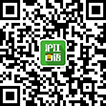2017考研:英语语法详解(32)
it 用于强调结构
在表示强调的结构中,it 可用作先行代词,这种结构的句型如下:It +is/was +被强调的部分+that +其他部分。如果强调的部分是人,可用who, whom 代替that.
例如:
Professor Wang teaches us English every Monday afternoon.
王教授每星期一下午教我们英语。
强调主语:It is Professor Wang who teaches us English every Monday afternoon.
强调间接宾语:It is us whom Prof. Wang teaches English every Monday afternoon.
强调直接宾语:It is English that Prof. Wang teaches us every Monday afternoon.
强调状语:It is every Monday afternoon that Prof. Wang teaches us English.
It was here that I first met him. 这就是我初次与他见面的地方。
(强调状语)
It is the people who are realy powerful.
翻译练习
1)该上课了,快。
It is time for class. Hurry up.
2)从这儿到你们学校远吗?不远,大约一公里。
Is it far from here to your school? ?No, it isn’t. It’s about a kilometer.
3)从我家到颐和园去很近。
It is very near from my home to the Summer Palace.
4)(天)正在下雨。
It’s raining now.
5)电灯是爱迪生发明的。
It was Edison who invented the electric light.
6)我认为学习一门外语是很重要的。
I think it important to learn a foreign language.
7)他通常一天读两次英语。
He made it a rule to read English twice a day.
8)从我家去天安门广场坐公共汽车大约要一个小时。
It takes about an hour to go from my home to the Tian’anmen Square by bus.
反意疑问句
反意疑问句相当于“对不对?”“好不好?”“行不行?”,用yes或no 回答。由两部分组成,前一部分是陈述句,后一部分是附加疑问短语,中间用逗号隔开,所以反意疑问句又叫附加疑问句。通常的形式是:肯定的陈述句+否定的附加疑问,或否定的陈述句+肯定的附加疑问。
如:
He studies English, doesn’t he?
He doesn’t study English, does he?
They are from America, aren’t they?
They are not from America, are they?
反意疑问句的主要形式:
1.如果主句是be或其他助动词(如can, shall, will 等),其反意疑问句用同一助动词。
如:
We are late, aren’t we?
You haven’t met my wife, have you?
He can drive a car, can’t he?
They used to have difficulty in just making ends meet, didn’t (usedn’t) they?
You’d better eat with knives and forks, hadn’t you?
2.如果主语带有seldom, hardly, never, rarely, few, little等否定词或半否定词时,因为主句本身具有否定意义,附加疑问部分的动词用肯定式,
如:
We seldom go to the cinema, do we?
Sue almost never worked, did she?
3.如果主句部分是“I am…”结构,由于“am not” 没有相应的缩略形式,附加疑问部分一般用aren’t I 代替。
如:
I am your friend, aren’t I?
I’m late, aren’t I?
I am a student, aren’t I?
在祈使句中的附加疑问部分一般用will you, won’t you.
4. 在祈使句中的附加疑问部分一般用will you, won’t you.
如:
Sit down, will you?
Have some tea, won’t you?
Open the window, won’t you?
这种句子可以理解为: Will you do something?
如:Will you open the window?
注意:否定的祈使句之后,只能用will.
如:
Don’t forget, will you?
Don’t make so much noise, will you?
5.以Let’s… 开头的祈使句,肯定的用shall we? 否定的用all right? 或OK?, 如:
Let’s go back to our seats, shall we?
Let’s not have hot food this time, OK? (all right?)
这种句子可以理解为:Shall we (do something?),
如:Shall we go back to our seats.这样有助于理解和记忆。
注意:Let’s 与Let us 的区别:Let’s包括听话人在内,应用shall we, 而Let us 不包括听话人在内,表示“请你让我们…”,要用will you.
如:
Let’s watch the news on TV, shall we? (表示建议)
Let us watch the news on TV, will you? (表示请求)
6.主句是I suppose, I think, I believe等时,附加疑问部分则往往与that 从句中的主语和谓语动词保持对应关系,但要注意否定的转移。
如:
I suppose that you know the meaning of the word, don’t you?
(这句话明显是要问“你是不是知道?”而不是问“我是不是这样认为?”)
I don’t think that you have read the book, have you?
7.当主句的动词have 表示“拥有”时,附加疑问既可用have, 也可用do,
如:
You have a color TV set, haven’t you/don’t you?
当主句的have不表示“拥有”而表示其他意思时,附加疑问要用do,
如:
You had a cold yesterday, didn’t you?
They don’t have coffee with breakfast, do they?
8.There be句型的反意疑问句,用there 作主语。
如:
There is something wrong, isn’t there?
There won’t be any trouble, will there? 不会有任何麻烦,是吗?
9.陈述部分的主语是everyone, someone, anyone, no one, nobody等不定代词时,其疑问部分的主语可用he, 也可用they.
如:
Everyone knows it, doesn’t he/don’t they?
英语反意疑问句的回答有点和汉语的相反。但一定要记住:只要回答是肯定的,都用yes,只要回答是否定的,都用no。这在主句是否定句的时候要特别注意。例如:
Mr. Jones can’t speak French, can he? No, he can’t.
琼斯先生不会讲法语,对吗?对,他不会讲法语。
Mr. Jones can’t speak French, can he? Yes, he can.
琼斯先生不会讲法语,对吗?不,他会讲法语。
This is not a door, is it? -Yes, it is. It is an iron door.
这不是门,对吗?不,这是门。是扇铁门。
猜你喜欢
- 来日留学不可不知的十大APP
小编根据自己的留学生活经验给大家推荐以下十款必备的App,几乎涵盖生活的方方面面,无论你是找兼职还是要网购,是阅览资讯还是观看视频,都能提供极大便利。
- 日本动漫游戏:学校的圣域
feng社第9作第1弹《彼女のセイイキ(她的圣域)》,而系列的第2弹《妹的圣域》已于2015年08月28日发售,系列第3弹《学校的圣域》在2016年11月发售。
- 日本惊悚恐怖电影《裸体之夜:掠夺狂爱》
《裸体之夜2:掠夺狂爱》是由石井隆执导,竹中直人、佐藤宽子等领衔主演日本惊悚情色电影。该片讲述了主人公红次郎替年轻女孩加藤怜寻找叫“多绘”的救命恩人,结果踏入充满危机的“粉红”漩涡中。
- 秒变单身狗:哪些话不能对恋人说
恋爱初期总是美好而甜蜜的,然而两人长期处下来,就会发现对方的不足之处。生气起来口不择言,结果深深的伤害到两人的感情。这期给大家介绍一些对恋人可不能说的一些话。
- 「こんにちわ」是个啥?你知道吗?
常逛日站或是和日本朋友聊天的小伙伴们肯定经常会听到一句:こんにちわ,从发音上我们可以猜出来是こんにちは,但是这个こんにちわ是怎么来的呢?他又是什么呢?下面就让沪江日语教研君来告诉你吧!
- 日本礼仪:你真的会斟酒吗?
走进社会,我们不仅要在工作上努力努力再努力,还要一边学习一些社交礼仪。酒会作为一种常见的社交活动,学会其中的斟酒礼仪也是一门学问。今日,小编给大家整理了日本的斟酒礼仪供大家参考学习。
- 动漫日语脱口而出:痛痛飞走了
看动漫不学日语?那就太可惜啦!花花团小组节目《动漫日语每日一句》,每天教大家一句动漫中的实用台词,让你在看动漫的同时学到地道日语口语。爱动漫,爱生活!一起来练习口语吧!


